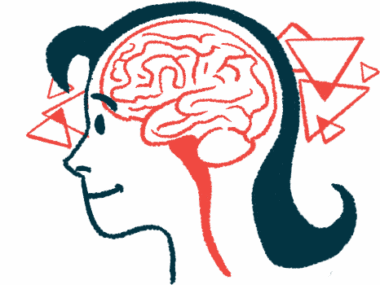Cedars-Sinai named neuroimmune, NMOSD care Center of Excellence
The designation makes health system one of 21 such centers worldwide
Written by |

Cedars-Sinai was designated a Center of Excellence in Rare Neuroimmune Disorders due to its efforts at advancing care and research for rare immune-mediated diseases of the central nervous system (brain, spinal cord and optic nerve), such as neuromyelitis optica spectrum disorder (NMOSD).
The designation was awarded by the patient advocacy group Siegel Rare Neuroimmune Association (SRNA), making the California health system one of 21 such centers around the world.
“We’re proud to be known as an exceptional center offering streamlined access to specialists highly trained in addressing the varied and specific needs of patients with rare neuroimmune disorders,” Paula Barreras, MD, an assistant professor of neurology and the director of the new Center of Excellence, said in a Cedars-Sinai press release. “This meaningful recognition by an organization that works with patients and the medical community helps us offer more people navigating these difficult conditions the services they need, without delay.”
The Center of Excellence in Rare Neuroimmune Disorders at Cedars-Sinai has specialists from several disciplines who provide patient-centered care in disorders that can affect the central nervous system.
More opportunities in care, research
NMOSD is an autoimmune disease marked by inflammation in the spinal cord and optic nerve, which relays signals between the brain and the eyes. This can lead to symptoms such as vision problems, uncomfortable burning or tingling, painful involuntary muscle contractions, and problems controlling the bladder and bowel.
“Because symptoms may span multiple physician specialties, patients who are not seen at a medical center with a multidisciplinary team are likely to experience delays on the road to an accurate diagnosis and treatment plan,” Barreras said.
Cedars-Sinai conducts testing and imaging toward an accurate diagnosis. Patients are then referred to specialists who can provide additional resources, such as neuropsychological and social services, assistance with insurance and medication management, and physical therapy and rehabilitation.
“Our goal is to ensure patients are not jumping through hoops to access good care and experience a better quality of life.” Barreras said.
According to Nancy L. Sicotte, MD, director of the Multiple Sclerosis and Neuroimmunology Program at Cedars-Sinai, the center’s designation will also benefit patients “because they have more opportunities to participate in research that can give them access to the most innovative treatments.”
“Our institution benefits from increased opportunities for research funding, and our research fellows benefit as they gain a greater understanding of the mechanisms of rare neuroimmune disorders and ways to improve outcomes for patients,” Sicotte said.
Cedars-Sinai’s has a broad team of experts in several areas, including neurology, ophthalmology, neuroimmune conditions such as multiple sclerosis, and neurological rehabilitation.
“I’m thankful for our enthusiastic and knowledgeable team of clinicians, and I’m proud we can provide world-class care to patients,” Barreras said. “I’m also grateful for increased awareness for rare neuroimmune disorders, which will lead to advances in research and improved treatments.”






